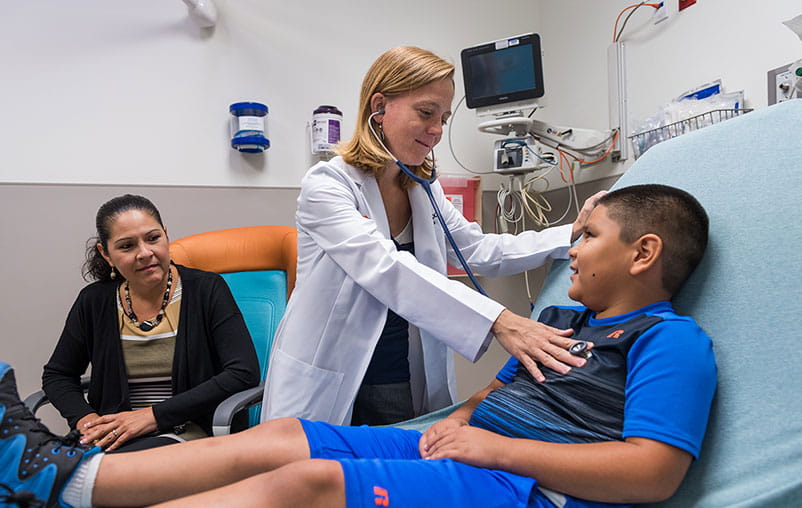Raising children is hard enough under normal circumstances. Doing it during the COVID-19 pandemic can be enough to drive even the calmest and most dedicated parents to pull at their hair. Gone are the trips to the park, play dates and summer camps you relied on for a desperately needed break. And how can you get any work done with your little ones tugging at your shirt because they can’t find their favorite stuffy? It’s sitting in the same spot as always - on their bed.
Take a breath - you’re not alone. Parenting is hard enough without the constant fear of you or your children becoming or making others sick. Here are a few pieces of advice to help you, help your child, through this extended time at home.
Occupying a rapidly developing mind
Children’s brains - especially pre-school aged kids—are developing at a rapid pace. The Center on the Developing Child at Harvard University estimates that young children’s brains can form more than 1 million neural connections per second during the first few years of life.
You’ve seen this process in action if you’ve ever played 100 Questions with a 4 year-old. Their thirst for knowledge can be insatiable, and the truth is sometimes we run out of answers. But it’s critical to continue nurturing your young child’s psychological development by challenging them.
“Do activities that involve a great deal of hands-on,” says Dr. Steven Pliszka, the Chair of Psychiatry and Behavioral Sciences at University Health. “This includes coloring, building with blocks or LEGOs, building blanket forts, pretend play or reading to your child.” These types of activities engage your child’s brain and encourage problem solving, which helps develop those neural connections.
Teaching children to be self-reliant
What about when you’ve got a Zoom meeting or just need to get the dishes done? Teaching young children self-reliance can help loosen up your schedule and instill independence for them.
Dr. Pliszka says to help your child to play by themselves when you need a break. “Teach them games and activities like building with LEGOs or model kits that they can do on their own. Encourage reading of actual books, not just browsing on the internet.”
The key here is to guide them to solve their own problems so they have a sense of satisfaction when they accomplish something. Don’t do the activity for them - show them how they can do it by themselves, and you just might capture a few minutes to yourself.
But every parent knows these tactics only work for so long, and eventually that sweet little face is back at your hip begging for more attention.
So real talk: Can I please plop my kid in front of the TV for a while to get some work done? “Yes—within limits,” says Dr. Pliszka. “Young children should not be watching TV, browsing the internet or playing video games the entire day. Try to limit to two hours in the morning and afternoon as a maximum.”
What about a play date?
One of the best ways to occupy your child’s mind and body is to get them together with others their own age. Unfortunately, right now is not the right time to schedule a play date for your preschooler.
“Children may be asymptomatic for COVID-19, and young children will play closely together and cannot social distance,” says Dr. Pliszka. “For now, gathering children from different households should be avoided.”
In the meantime, you can practice socialization for your child the same way you’ve been experiencing the world—online. A virtual play date via FaceTime or Zoom can offer your child the kind of social interaction she craves without the risk of getting sick. It’s not a direct replacement for unstructured playtime, but having your child talk with others their own age can help maintain their social development for when it’s time to get together again.
That kind of social interaction is important for young children whether it’s with a friend or you as their parent. “Take this opportunity to interact verbally,” says Dr. Pliszka. “Encourage your child’s expression and creativity.” If your child has a problem, listen and try to work through it with them.
What if I think my child is struggling?
“Increase in temper tantrums, crying spells and being withdrawn” are all signs that your child might be struggling, says Dr. Pliszka. This is a difficult time for everyone, and your child may not be able to verbalize or express their frustration in the way you might expect. Your child might lash out more than usual or hide in their room. You know your child’s behavior better than anyone, so you are the best judge for when that behavior suddenly changes.
If you notice something out of the ordinary that concerns you, Dr. Pliszka has some straightforward advice: “Reach out to a mental health professional if you need it.” Don’t be embarrassed or frightened by a perceived stigma related to mental health. If you or your child needs support, it’s okay to seek help from professionals.
I’m not a teacher—how do I keep my child on track?
COVID-19 has upended our normal routines, and consistent schedules are important for every child’s mental health. Classrooms and childcare centers are structured, scheduled places where children are directed sometimes down to the minute throughout the day. This predictability helps them know what to expect and encourages self-reliance and accountability by giving them the opportunity to predict what will happen next.
No one expects parents to run their home like a classroom—that’s why teachers are licensed professionals. But establishing and maintaining a schedule can help you and your child keep peace while stuck inside. Give your child responsibilities and expect them to follow through. Even a young child can help pick up their toys, mix a salad or brush the dog.
Giving your child responsibility and structuring when they should do certain tasks will help empower them to give back to your household.
Another tactic to help your child stay on track is to maintain an early bedtime. Good sleep promotes healthy brain development and keeps your child happier and more balanced throughout the day. Studies have even shown that a consistent, early bedtime can improve your child’s physical health.
But many parents don’t realize that early bedtimes are also a boon for them. If your child is in bed and asleep every night before 8 p.m., you have a few uninterrupted hours to catch up on work or relax with a book and a cup of tea. This calm time can restore your energy and recharge your batteries for another excitement-filled day ahead.
Take advantage of this time with your child
One final piece of advice to parents stuck inside with their kids is to remember that your children are picking up on your actions. “Parents should model the behavior they want in their child,” says Dr. Pliszka. “If the parent is looking at their phone all the time, the child will want to do the same.”
In so many ways the world is more complicated now than it was before COVID-19, but it's also simpler too. We aren’t going out as much; many of us are spending the majority of our time at home and cooking more. Perhaps most importantly for parents, there may never be another period in your life when you get to spend this much time with your children. Think and reflect on that fact when you feel frustrated.
You have an opportunity to model exactly the kind of person you want your child to be. Now, more than ever, you are their entire world. So be kind, patient and understanding—with your child and with yourself.




